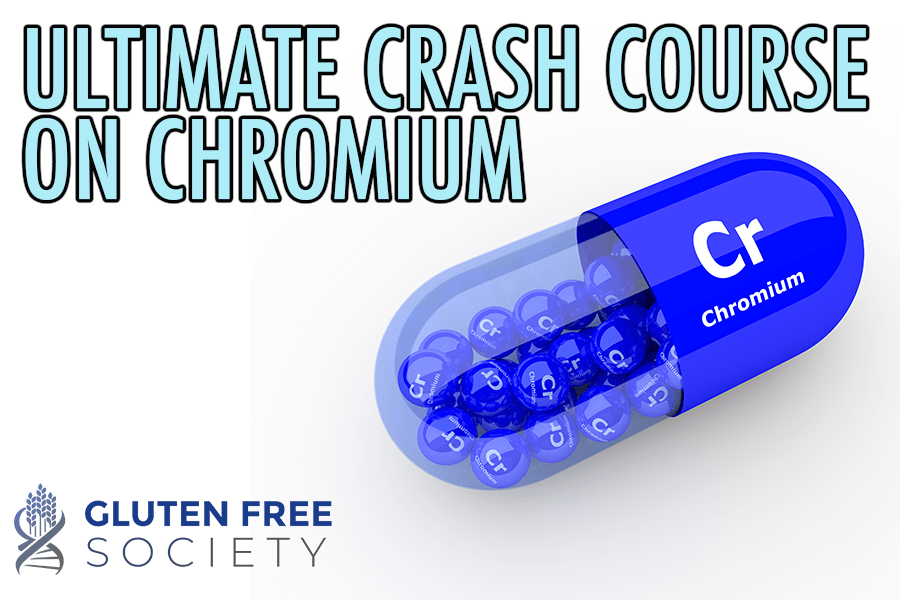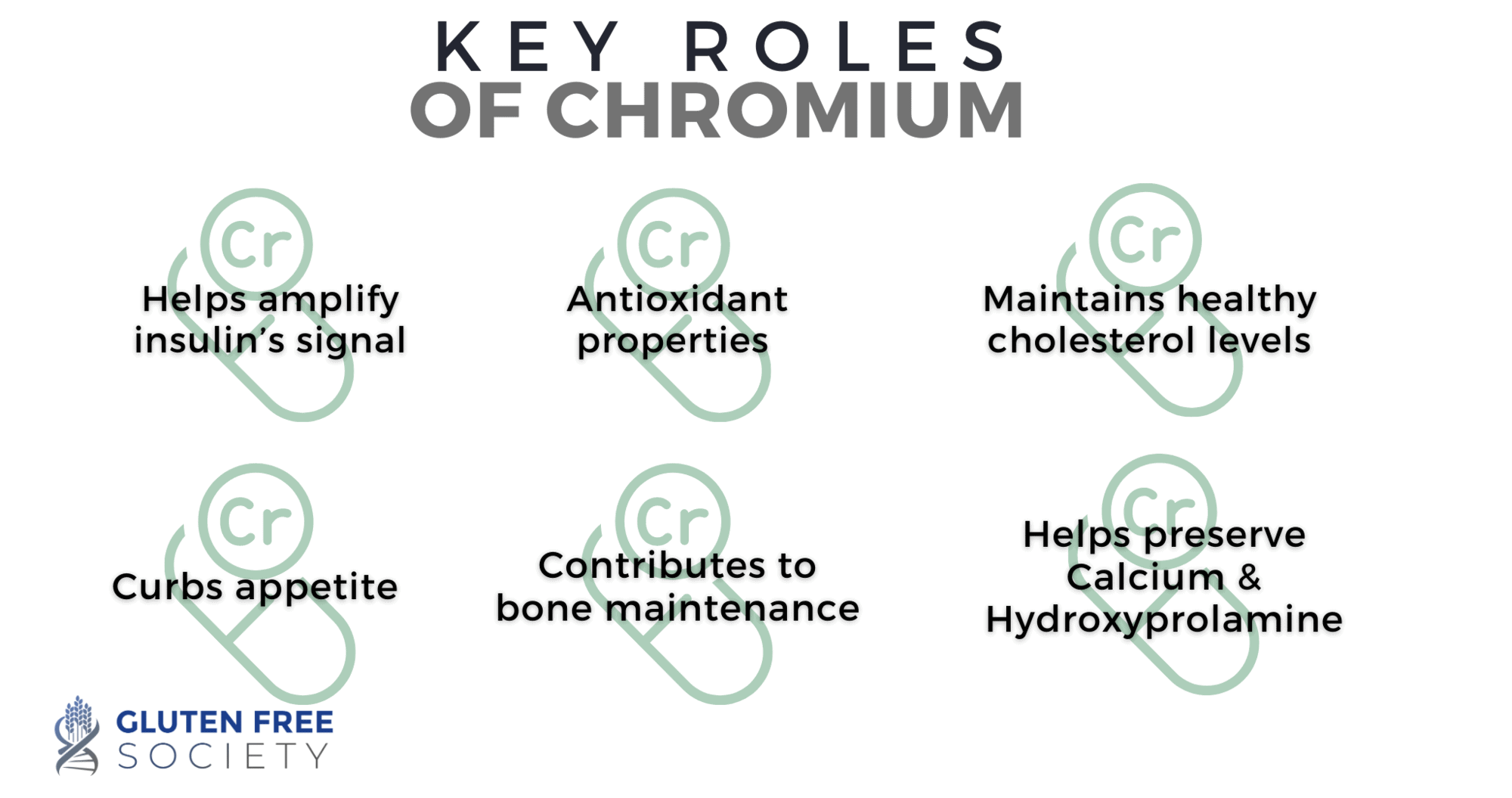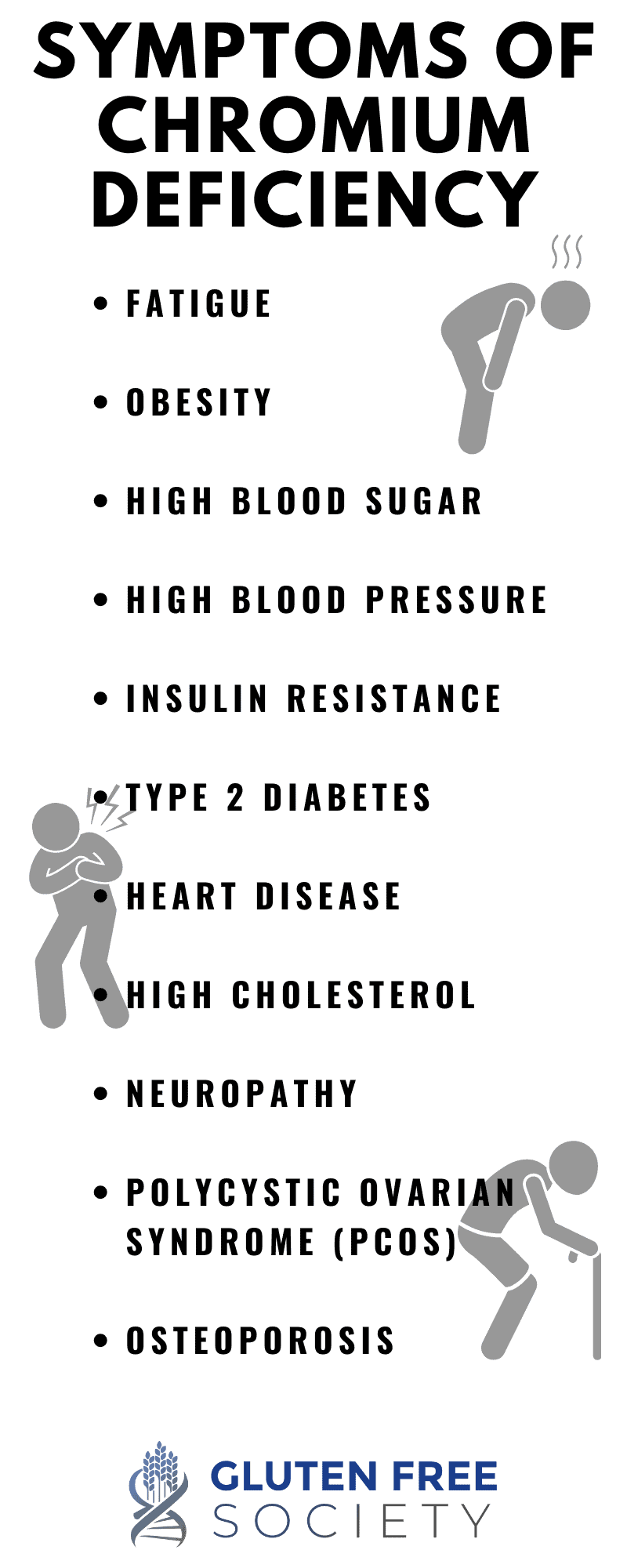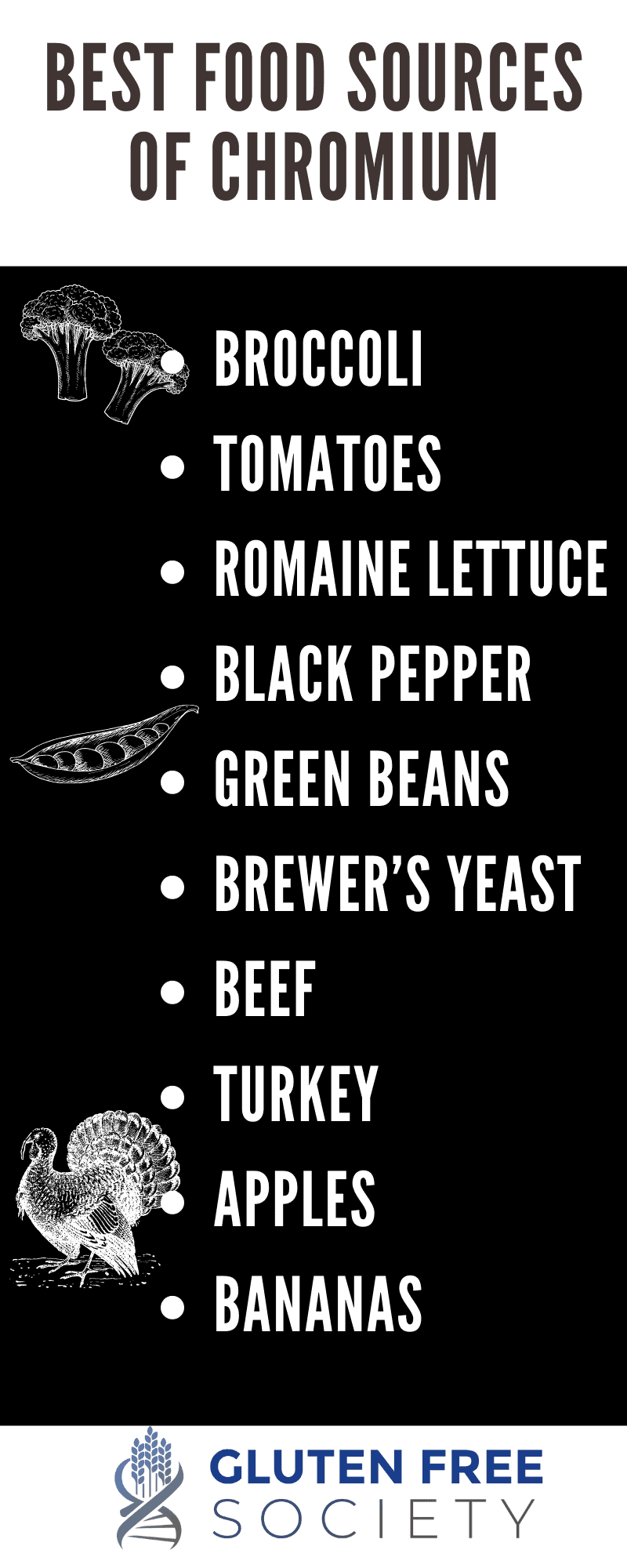new to the gluten free journey?
new to the gluten free journey?

Contents
Toggle

 If you have gluten sensitivity, your doctor may recommend chromium supplementation or prescribe a supplement with chromium. However, it’s no substitute for a gluten-free diet. A strict gluten-free diet will help reduce inflammation and heal the lining of your gut so you can effectively digest your food and absorb chromium from all the healthy whole foods you’ll be eating instead.
If you missed our episode covering this topic, you can watch the replay here – https://www.youtube.com/watch?v=mdonBiWaQ-Q
These are the additionally mentioned supplements:
B-Complete
Ultra Mg
Ultra Cal/Mag
If you have gluten sensitivity, your doctor may recommend chromium supplementation or prescribe a supplement with chromium. However, it’s no substitute for a gluten-free diet. A strict gluten-free diet will help reduce inflammation and heal the lining of your gut so you can effectively digest your food and absorb chromium from all the healthy whole foods you’ll be eating instead.
If you missed our episode covering this topic, you can watch the replay here – https://www.youtube.com/watch?v=mdonBiWaQ-Q
These are the additionally mentioned supplements:
B-Complete
Ultra Mg
Ultra Cal/Mag
Stay up-to-date with the latest articles, tips, recipes and more.

*These statements have not been evaluated by the Food and Drug Administration. This product is not intended to diagnose, treat, cure or prevent any disease.
If you are pregnant, nursing, taking medication, or have a medical condition, consult your physician before using this product.
The entire contents of this website are based upon the opinions of Peter Osborne, unless otherwise noted. Individual articles are based upon the opinions of the respective author, who retains copyright as marked. The information on this website is not intended to replace a one-on-one relationship with a qualified health care professional and is not intended as medical advice. It is intended as a sharing of knowledge and information from the research and experience of Peter Osborne and his community. Peter Osborne encourages you to make your own health care decisions based upon your research and in partnership with a qualified health care professional.